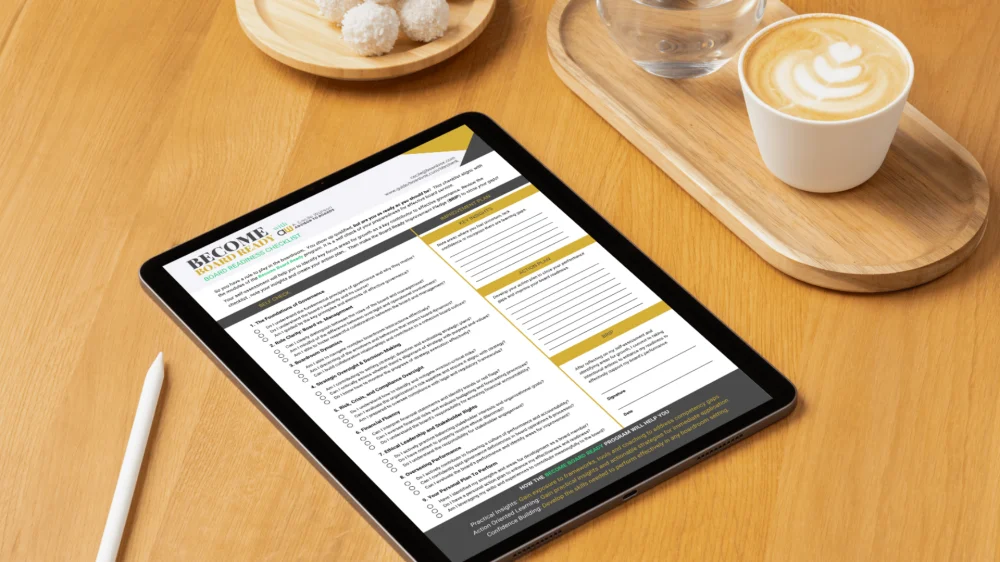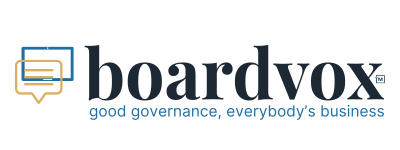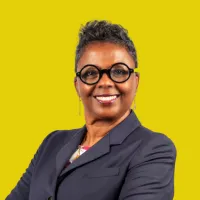Board and Leadership Development for Caribbean Professionals
Global Standards, Local Relevance
How we help
We are the Voice, Expression, and Tone of Good Governance.
Helping organizations across the Caribbean and beyond realize their full potential by educating, informing, and supporting boards, directors, and C‑Suite leaders. Through practical training, strategic tools, and governance advisory services, we enable leaders to create enduring value—for today and the future.
How we help
We are the Voice, Tone and Expression of Good Governance
helping organizations to realize their full potential
by educating, informing, and supporting boards, directors, and c-suite leaders
with the training, tools and services to create the best value for today and the future.

Board, Director, and C-Suite
Training
We equip directors and C-suite leaders to excel in the boardroom through immersive coaching, tailored workshops, and flexible online programs—strengthening governance, decision-making, and leadership effectiveness across Caribbean organizations.

Board Performance
Tools
We deliver comprehensive board evaluations, improvement plans, and digital governance tools designed to assess, strengthen, and sustain board performance in alignment with global best practices.

Board Operating
Support Services
We help boards operate more effectively with retreat facilitation, policy templates, and administrative tools that streamline governance processes and keep boards focused on strategic impact.
Let's reimagine the future of board development.
We believe every director holds the key to unlocking extraordinary boardroom potential—and that the power to drive sustainable economic growth rests with people like you, right there in the boardroom. In an era where reputational risks are at an all-time high, board service has never mattered more. It demands integrity, courage, and vision from the best hearts and minds.
That’s why we’re redefining how boards grow stronger—by making governance easier for smarter boards.
BoardVOX helps directors embrace their profound responsibility, lead with independence and ethics, and champion the principles of good governance that build trust and long-term value.
Coming Again Soon!
Join The Waitlist for Become Board Ready
This checklist is your entry point to the
Become Board Ready Program ...a guide designed to empower directors and aspiring board members to excel in their governance roles.
Download the checklist and get waitlisted for Cohort II of Become Board Ready
Elevate Your Governance Expertise: Master the key principles that drive effective board leadership.
Strengthen Board Dynamics: Foster alignment, trust, and a shared understanding in the boardroom.
Confidently Navigate Your Role: Clarify your responsibilities and deliver value with confidence.
Enhance Strategic Oversight: Stay focused on purpose, accountability, and long-term success.

This checklist is aligned with the proven modules of our Become Board Ready program, so you can start assessing and addressing your readiness immediately.
Complete the form and you'll receive the Board Readiness Checklist directly in your mailbox.
Privacy Disclaimer:
We respect your privacy. The information you provide will only be used to deliver your checklist and occasional updates about governance insights and resources. We will never spam you, sell, or share your information with third parties.
RED FLAGS IN THE BOARDROOM CHECKLIST
Add it to your Board Engagement Toolkit to have a handy guide empowering you to:
Identify potential governance risks early
Be vigilant and avoid corporate governance failures.
Uphold the highest standards of transparency and ethics.



Complacency: The Silent Risk in the Boardroom—Could It Be Yours?
Introduction:
There’s a common belief among leaders:
"I’ve been doing this for years—I know what I’m doing."
Some long-serving directors assume that tenure equals competence. They also think that experience alone makes them effective stewards of governance.
But here’s the uncomfortable truth: The longer you serve, the more likely you are to become the silent risk in the boardroom.
Not because you aren’t capable. Not because you don’t care. But because governance evolves—and if you’re not actively evolving with it, you may be holding your board back. And the worst part is that you may not be realizing it ...and nobody is daring enough to tell you.
But here’s the thing: Complacency has no place in the boardroom.
Every director has a responsibility—not just to ensure they themselves aren’t the silent risk, but also to recognize and address it when they see it. Because ignoring it? That’s how boards fail.
And I want to keep it real—this isn’t easy. It takes maturity to recognize the shift is required, courage to confront it, and diplomacy to navigate it without fracturing board dynamics.
Some of the most serious governance failures in recent years have occurred under the watch of highly experienced directors—leaders who were respected, well-credentialed, and had served for years.
Yet despite their experience, their boards still found themselves at the center of crises, lawsuits, and loss of stakeholder trust.
What went wrong? And more importantly—what can today’s directors do to avoid this trap?
The good news? You can do something about it. Staying relevant isn’t about stepping aside—it’s about stepping up.
Let’s look at three cases where governance failures happened under experienced boards—and the lessons they leave behind.

Structured Oversight: A Remedy for Complacency In The Boardroom
Boeing: The Risks of Over-Reliance on Management
Boeing’s board, composed of seasoned corporate leaders, faced intense scrutiny after two fatal crashes involving the 737 Max aircraft. Investigations and legal actions suggested that governance processes may not have been robust enough to detect or challenge risks before they escalated.
While details continue to unfold in legal proceedings, this case highlights a critical governance lesson:
✅ Boards must challenge assumptions and verify risk controls, rather than solely relying on management’s assurances.
Experienced directors can sometimes become too trusting of long-standing management teams, believing that past performance ensures future safety. But governance is about structured oversight, not passive trust.
The question for all boards today is: Are we actively interrogating risk, or are we assuming that past success guarantees future safety?
Theranos: The Importance of Industry Expertise and Oversight
Theranos was once a Silicon Valley darling, with a board composed of distinguished former government officials and business leaders. Many of them had decades of boardroom experience.
However, when the company collapsed, critics pointed to governance blind spots—including a lack of industry expertise on the board and a failure to demand independent verification of the company’s technology claims.
✅ This case underscores why boards must ensure they have a diverse mix of expertise, particularly in complex, high-risk industries.
It’s also not enough to have experience in governance—directors must also continuously refresh their knowledge and remain actively engaged in oversight.
For long-serving directors, the key question is: Am I bringing fresh, informed perspectives to this board, or am I relying too much on past experience?
Food Safety and Risk Oversight: When Boards Don’t Ask the Right Questions
In a widely reported food safety case, a major ice cream manufacturer faced a serious health crisis when a product contamination issue resulted in a recall and regulatory scrutiny.
Reports suggest that, before the crisis, risk oversight mechanisms may not have been robust enough to detect vulnerabilities in the company’s safety processes. Some governance analysts pointed to board composition and the need for stronger compliance structures as areas that could have mitigated the issue.
This situation highlights an important governance lesson:
✅ Boards must ensure that risk oversight processes are proactive—not reactive.
The assumption that “everything is fine because nothing has gone wrong before” can be one of the most dangerous blind spots in governance.
For directors who have served on boards for years, the question becomes: Are we actively evolving our risk oversight, or are we assuming past processes are sufficient for today’s challenges?
The Hard Truth: Long Tenure Without Continuous Learning Is a Governance Risk
Governance today is not what it was 10 years ago. Regulations have evolved. Stakeholder expectations have increased. The risks facing organizations are more complex.
And yet, some long-serving directors still operate as if nothing has changed.
✅ They resist training because they believe tenure equals competence.
✅ They assume past successes guarantee future effectiveness.
✅ They trust rather than verify when it comes to risk oversight.
But if experience alone was a guarantee of good governance…
❌ No board would ever find itself facing lawsuits or investigations.
❌ No organization would suffer reputational collapse due to oversight failures.
❌ No customer would lose faith in the organization they trusted to act responsibly.

In Conclusion
The reality is, great directors never stop learning. They remain engaged, they challenge assumptions, and they evolve alongside governance best practices.
So here’s the key question for boards today:
What have you observed about the long-serving directors you know? Are they evolving to meet today’s governance needs, or are they stuck in the past?
Let’s share and keep it real!
#GovernanceEdge #BoldLeadership #EthicalGovernance #CorporateGovernance #DirectorTraining #FiduciaryDuties #RiskOversight #BecomeBoardReady
Enjoyed this article? Subscribe to never miss an issue.
Drop me a note and share your best board leadership stories.
Stay tuned for more perspectives on bold leadership and ethical governance insights. And if you haven't already, be sure to subscribe so you never miss a post. Together, we're set to build better boards and build boards better by reshaping the landscape of boardroom leadership, one director at a time.
🌐💼 #BecomeBoardReady #strategy #BoardDevelopment #CorporateGovernance #GoodGovernance #BoldLeadership #EthicalGovernance #BoardPerformance #boardvox 🤝🔍
Know someone who might be interested in this blog? Please be sure to share it with them.
Also be sure to follow our boardVOX WhatsApp channel here. It is Especially for directors, c-suite leaders, corporate secretaries and all interested in good governance.
YES, YES ...I GET IT
This is exactly what I need right now.
I'm seeking a network of professionals who understand the challenges of the boardroom.
I want to elevate my leadership and have a real impact in the boardroom.
Continuous learning is crucial in our field, and I'm eager to stay ahead.
I believe in the power of good governance to shape the future of business and communities.
If this sounds like you, then DIVE RIGHT IN!
Join Our Movement As
A Partner In Good Governance.
Helping you avoid SHOULD'VE and COULD'VE ... to done right, every time.

